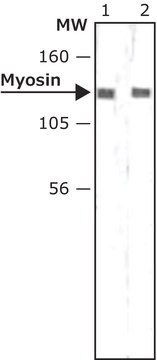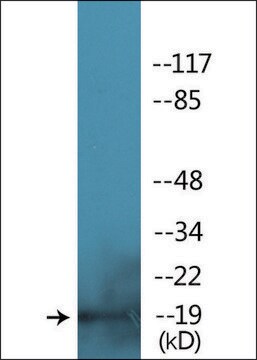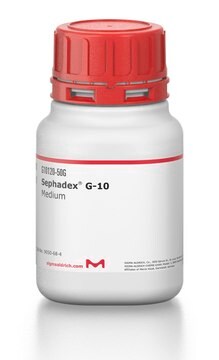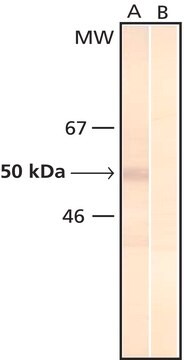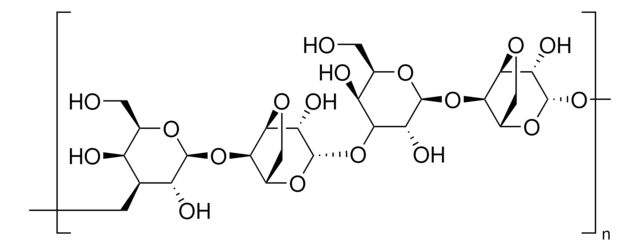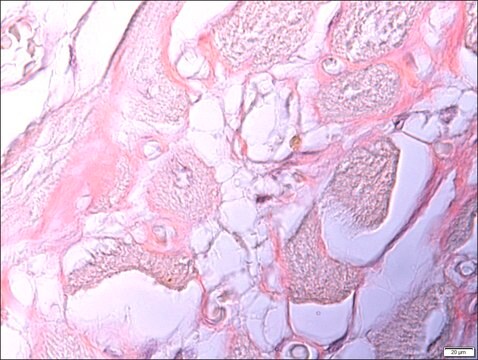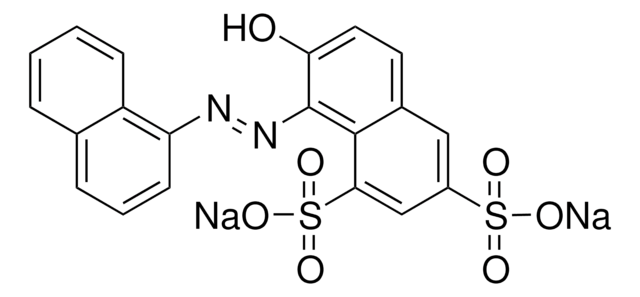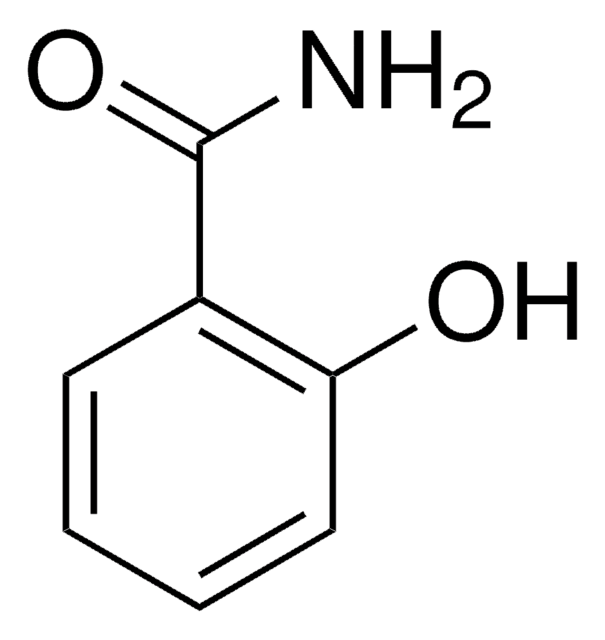M5688
Mimetic Orange 1 Ligand Affinity Adsorbent
suspension
Sign Into View Organizational & Contract Pricing
All Photos(1)
About This Item
Recommended Products
Application
Ligand affinity adsorbents are used in protein chromatography, affinity chromatography and dye resins. Ligand affinity adsorbents have been used to describe a simple protocol for the purification of Taq Polymerase from E. coli lysates as well as for the purification of other DNA polymerases.
signalword
Warning
hcodes
Hazard Classifications
Flam. Liq. 3
Storage Class
3 - Flammable liquids
wgk_germany
WGK 1
flash_point_f
95.0 °F - closed cup
flash_point_c
35 °C - closed cup
ppe
Eyeshields, Faceshields, Gloves, type ABEK (EN14387) respirator filter
Choose from one of the most recent versions:
Already Own This Product?
Find documentation for the products that you have recently purchased in the Document Library.
Emily R Beynon et al.
Plant physiology, 151(1), 253-261 (2009-07-17)
The explosive 2,4,6-trinitrotoluene (TNT) is a significant environmental pollutant that is both toxic and recalcitrant to degradation. Phytoremediation is being increasingly proposed as a viable alternative to conventional remediation technologies to clean up explosives-contaminated sites. Despite the potential of this
Sotirios Melissis et al.
Biotechnology journal, 2(1), 121-132 (2006-12-22)
The thermostable Thermus aquaticus DNA polymerase (Taq Pol) has been the key factor in transforming the initial PCR method into one with huge impact in molecular biology and biotechnology. Therefore, the development of effective affinity adsorbents for the purification of
S Melissis et al.
Journal of chromatography. A, 1122(1-2), 63-75 (2006-05-23)
The commercial availability of DNA polymerases has revolutionized molecular biotechnology and certain sectors of the bio-industry. Therefore, the development of affinity adsorbents for purification of DNA polymerases is of academic interest and practical importance. In the present study we describe
Jeannie Horak et al.
Analytical and bioanalytical chemistry, 400(8), 2349-2359 (2010-12-22)
The new affinity-type Mimetic Ligand™ B14 was coupled with a 1,2-diaminoethane spacer (2LP) and a [1,2,3]-triazole spacer (TRZ) to three different support media. In addition to the agarose-based PuraBead and the polymethacrylate-type Fractogel, three new polymeric support media were introduced
S J Burton
Methods in molecular biology (Clifton, N.J.), 11, 91-103 (1992-01-01)
Dye-ligand affinity chromatography is performed with an adsorbent consisting of a solid support matrix to which a dye has been cova-lently bonded. The protein mixture is passed through a packed bed of adsorbent that selectively binds proteins that are able
Our team of scientists has experience in all areas of research including Life Science, Material Science, Chemical Synthesis, Chromatography, Analytical and many others.
Contact Technical Service